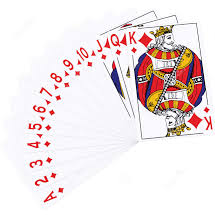Science > Mathematics > Statistics and Probability > Probability > Problems Based on Drawing 3 Playing Cards In the last few articles, we have seen to solve problems based on tossing of coins, throwing dice, and selecting numbered cards. In this article, we shall study the problems to find the probability involving the draw of […]
Categories
Problems Based on Drawing 3 Playing Cards
- Post author By Hemant More
- Post date November 20, 2020
- No Comments on Problems Based on Drawing 3 Playing Cards

- Tags Ace, Certain event, Club, Complement of event, Compound event, Denomination, Deterministic experiment, Diamond, Dice, Die, Elementary event, Event, Event space, Exhaustive event, Experiment, Heart, Impossible event, Jack, King, Mutually exclusive events, Numbered cards, Numbered tickets, Outcome, pack of cads, Playing cards, Probability, Queen, Random experiment, Same denomination, Sample space, Spade, Sure event, Well shuffled pack
